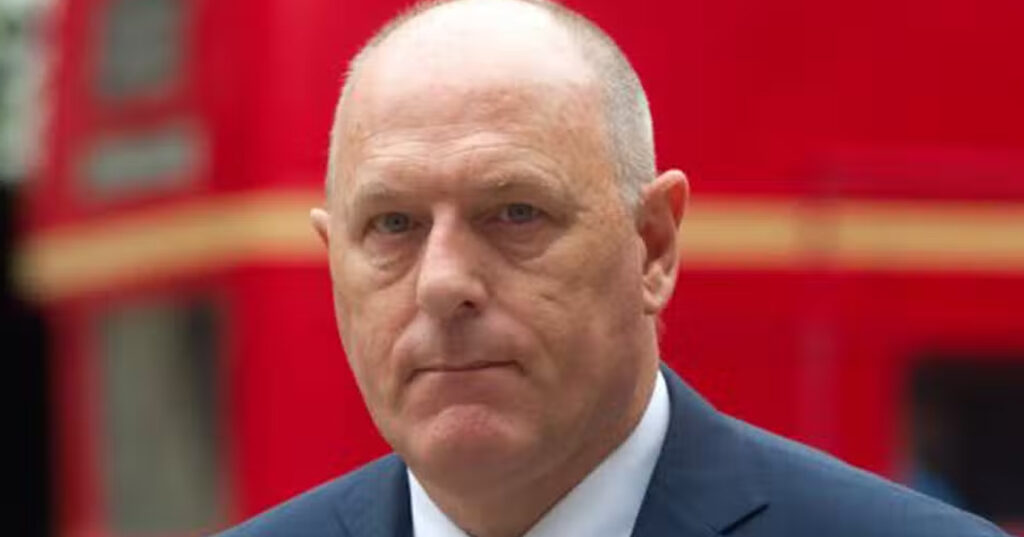
Peter Cruddas, the former Treasurer of the Conservative Party, has today won yet another round in his on-going battles prompted by his decision to sue The Sunday Times for libel.
The Independent newspaper apologised in open court this morning for two follow-up articles it carried on 9 June which referred to a police “investigation” and that suggested Mr Cruddas had acted illegally. The paper has now acknowledged that both these claims were false: it has also paid Mr Cruddas’s legal costs and made a donation to his charitable foundation.
Mr Cruddas’s determination to fight his corner means The Sunday Times may possibly rue the day it crossed swords with him even if its headline-grabbing articles did result in his resignation as Co-Treasurer within hours of the edition hitting the streets on the evening of Saturday 24 March.
For in pursuing The Sunday Times for damages, Mr Cruddas is displaying all the grit and determination that saw him rise from a tough east London council estate to become one of Britain’s most successful, self-made businessmen.
I disclosed in my blog of 25 July that Mr Cruddas was suing Times Newspapers Ltd and two of its journalists, Jonathan Calvert and Heidi Blake, over stories that alleged he had offered access to David Cameron in return for large donations to the party.
Mr Cruddas had been the victim of an old-fashioned newspaper sting after walking into a carefully-laid trap: the journalists set up a fake organisation, with a fake website and other subterfuge, in order to meet him in the guise of being prospective donors to the party.
Back in July, I questioned whether the party had been too hasty in forcing Mr Cruddas to resign before it had established the full facts about the case and I also expressed disappointment that the party had failed to show gratitude for all his hard work and his generous donations over the years.
In my blog of 1 September, I further revealed that, in his Particulars of Claim, Mr Cruddas had accused The Sunday Times of “selective” editing and “distorting” the facts.
In The Sunday Times’s 48-page defence, the paper denies these claims. It also, despite the sensationalist nature of its March reports, denies suggesting that Mr Cruddas had done anything illegal. Instead, his lawyers are concentrating on a defence of “justification” in publishing the articles.
The man in the street, however, may well have been left with a different impression after reading the paper’s articles. The Sunday Times’s editorial on the day of its disclosures appeared to hint at his behaviour being, at best, dodgy, and at worst, illegal. Headlined “Sack the Treasurer and clean up lobbying”, the hard-hitting editorial concluded:
The lesson of the Labour years was that the party’s corrupt relationship with its donors had a corrosive effect on politics and government. Tony Blair himself was interviewed twice by police over ‘cash for peerages’. The Tories now seem to be hurtling down a similar path. Mr Cameron’s responsibility is clear. Mr Cruddas has to be sacked as co-treasurer. Then Mr Cameron has to make good on his promises. Let him shine a light on the grubby dealings between lobbyists and politicians. Let him show he means it about cleaning up politics in Britain. There is no excuse for not doing so.
It is, perhaps, no coincidence that The Sunday Times’sbarrister is Heather Rogers QC, of Doughty Street Chambers. For Ms Rogers was representing The Times back in 1999 when I sued the paper after it waged a relentless smear campaign against me when I was Treasurer of the party under William Hague.
After I took legal action, one element of the The Times’sdefence was that it had never accused me of doing anything illegal: something I felt was disingenuous given the quantity and the prominence of articles about me, and the extraordinary efforts the paper had gone to in order to try to link me to crimes ranging from drug running to money laundering.
Ms Rogers has built up a formidable reputation over the years and has recently been an advisor on the Government’s Defamation Bill. However, I, personally, lost some respect for her when I discovered that she had taken part in a clandestine meeting back in July 1999 with a corrupt serving official from the US Drug Enforcement Administration (DEA) who had illegally been leaking highly-confidential information to The Times in order to smear me. Jonathan Randel, the official she met to help prepare the paper’s defence to my libel action, was later jailed over his actions.
If Mr Cruddas’s libel action runs its course, it will, eventually, be up to the High Court to decide if The Sunday Times has defamed him. However, for now at least, he seems to be winning his battles one by one as he faces a series of unwelcome repercussions from paper’s initial story.
At the beginning of May, the Electoral Commission, the watchdog body, said it would be taking no action against Mr Cruddas because it had identified no breach of party funding laws.
In early September, a senior detective from the Metropolitan Police wrote to Mr Cruddas to say he had carried out “a proportional assessment”, following a complaint of an alleged crime, and he had concluded “there is no evidence of any criminal conduct…either directly or by implication during the course of The Sunday Timesinvestigation. I also conclude that no inchoate offences have been committed. My assessment is now complete…” For the non-lawyers, an inchoate offence involves the crime of preparing for, or seeking to commit, another crime.
Mr Cruddas’s hat-trick of “victories” has been completed byThe Independent’s apology today and the paper’s acceptance that there never has been a criminal investigation into his actions.
It is possible that Mr Cruddas may soon have a further legal triumph to his name: Mark Adams, the lobbyist who made complaints about him to the Electoral Commission and the police, is also the subject of legal action for publicly accusing him (Mr Cruddas) of criminality. I will not comment further on this issue because it is currently being considered by the courts. For now, at least, the “offending” blog has been removed from the internet.
I readily admit to feeling sympathy towards Mr Cruddas. He nobly fell on his sword as soon as he was told he had lost the confidence of the party’s hierarchy and he has kept a dignified public silence – for the sake of the party – while others have made a series of critical and ill-informed comments against him.
In the wake of Andrew Mitchell’s resignation last month as Chief Whip, Michael Gove was interviewed on television and he defended the Prime Minister’s decision not to remove Mr Mitchell earlier:
I think one of the many reasons why David Cameron is an outstanding leader and an outstanding Prime Minister is that he believes in backing those who work for him. He is not someone who, at the first whiff of trouble, abandons those who’ve pledged their loyalty to him.
“I think what you want in any leader is the knowledge that they will back you, that they will show steadiness, that they will do anything they can to ensure the team that’s been picked stays together, works together, fights together…David Cameron’s determination to trust and to back those who work for him, to my mind, marks him out as a man of honour.
These are worthy sentiments from the Education Secretary: I am fully in favour of senior Tories instinctively wanting to support and protect one of their own in a time of crisis. But did the party, and indeed the Prime Minister himself, really show loyalty and backing to Mr Cruddas in March, just when he needed them most?



